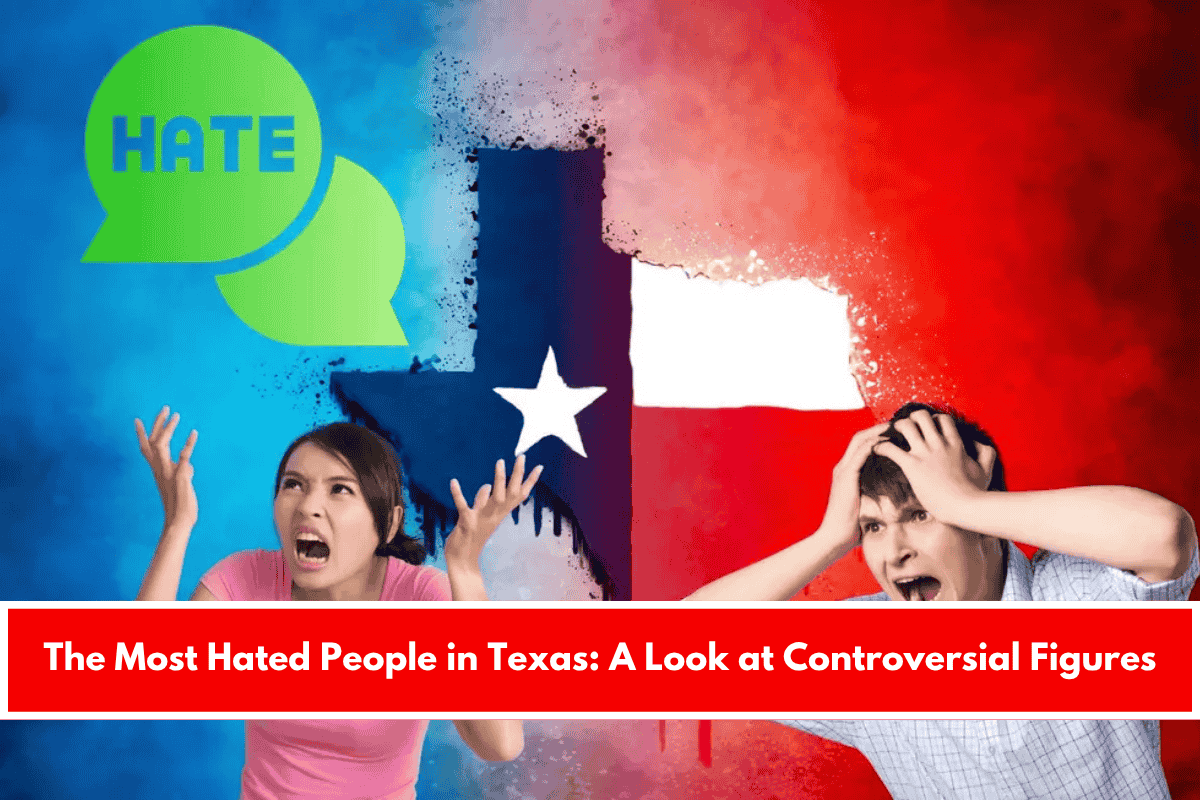Living in Texas means encountering a wide variety of people with different opinions, personalities, and beliefs. It’s only natural that, just like in any other place—whether it’s school, work, or everyday life—there will be people you don’t particularly like.
This could be due to differing opinions, past interactions, or even political disagreements. But who are the people who are hated the most in Texas? And what makes them so divisive?
Understanding Dislike: It’s All About Perspectives
When discussing people who are hated, it’s essential to recognize that opinions are subjective. One person’s hero might be another person’s villain, and this is especially true when it comes to political beliefs.
Political ideologies have led to deep divisions in Texas, and many of the people who make this list have earned their spot due to controversial political actions or polarizing stances on major issues.
However, it’s important to remember that, regardless of how you feel about these figures, they are still people. They have families, they’re trying to make a living, and they are doing their best in a world full of differing opinions. Even if you disagree with their views or actions, it’s essential to respect the humanity of others.
The List of Most Hated People in Texas
Here’s a list of some of the most controversial people from Texas, many of whom have earned their place due to political beliefs or actions.
1. Alex Jones
Alex Jones, a conservative talk show host, is widely disliked for his extreme conspiracy theories. He gained massive attention for claiming that the Sandy Hook Elementary School shooting was a hoax.
His statements led to widespread criticism, legal battles, and significant backlash. His controversial views have earned him a place on the list of most hated people in Texas.
2. Ted Cruz
Senator Ted Cruz is a highly polarizing figure in Texas. His stance on political and social issues—including his support of the January 6 Capitol riots—has made him a target of intense criticism.
Additionally, his controversial policies and often combative political style have led to a strong divide in public opinion. While some Texans support him, many others find his actions and rhetoric deeply troubling.
3. Ken Paxton
As the Attorney General of Texas, Ken Paxton has faced significant backlash due to his legal troubles and controversial political actions.
He was indicted for securities fraud and has been involved in several politically charged lawsuits. His political stances and actions have earned him both loyal supporters and passionate critics.
4. Greg Abbott
Governor Greg Abbott has been a figure of strong opinions throughout his tenure. He is often criticized for his handling of immigration, his stance on gun control, and his response to natural disasters like the 2021 winter storm.
These issues, among others, have made Abbott a highly divisive figure in Texas, with some calling for his resignation.
5. Rick Perry
Former Governor Rick Perry is disliked for his policies and leadership during his time in office. Additionally, his role as the U.S. Secretary of Energy under President Donald Trump sparked more criticism.
Perry’s views on climate change, energy policy, and his time as governor have made him a divisive figure, particularly among those who disagree with his political approach.
6. George W. Bush
Though George W. Bush served as the President of the United States, many Texans dislike him for his role in the Iraq War and other controversial policies during his presidency.
His actions on the global stage, especially concerning the Iraq invasion and handling of the War on Terror, led to significant opposition both in Texas and across the country.
7. Lyndon B. Johnson
Former President Lyndon B. Johnson (LBJ) is often remembered for his role in the Vietnam War. His handling of the war, which many believe led to unnecessary loss of life, earned him criticism from various political groups.
Despite his significant domestic achievements, such as civil rights legislation, his foreign policy decisions during the Vietnam War caused deep dissatisfaction, especially in his home state.











Leave a Reply